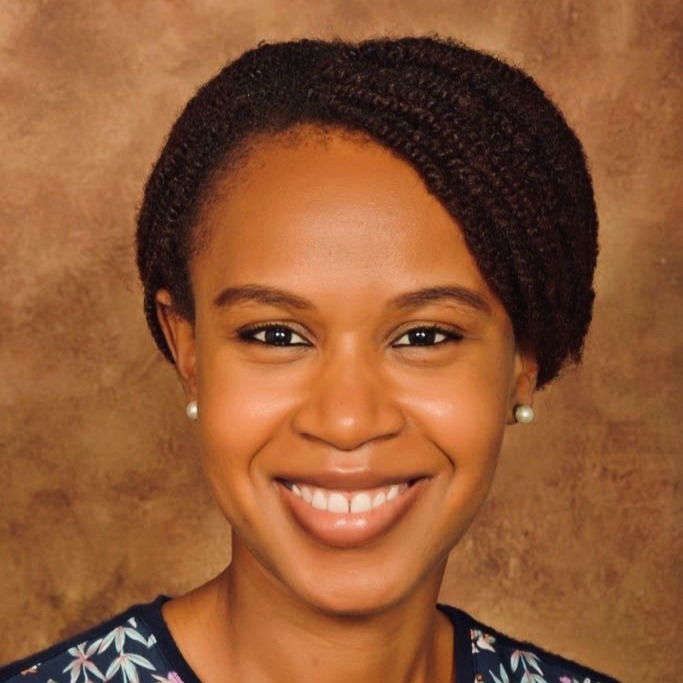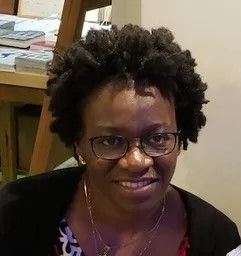Lack of data on ICT access, skills, and leadership risks holding back gender equality in Africa
- Lorenz Noe (Open Data Watch), Gloria Muhoro (UNHCR), Araba Sey (Research ICT Africa), Neeraja Penumetcha (Data2X)
- May 30, 2022
- 4 min read
Only 33 percent of people living in Africa used the internet in 2021. This is a rapid increase compared to ten years ago: In 2011, less than eight percent of people in Africa used the internet. Even assuming continued growth along these trends, income and infrastructure constraints will continue to limit internet access in Africa. But do these constraints affect everyone to the same degree? Thanks to the availability of sex-disaggregated data on a regional level published by ITU, we’re able to see that countries in Africa have among the highest differentials between men and women when it comes to internet usage: In 2020, 35 percent of men in Africa used the internet, compared to 24 percent of women.[1] Considering that using the internet is key to social and economic empowerment, education, and human rights for all, these numbers showcase the threat that unequal access to technology poses not just to overall economic development in Africa, but gender equality more specifically.
These numbers showcase the threat that unequal access to technology poses not just to overall economic development in Africa, but gender equality more specifically.
These regional numbers further obscure the fact that countries in Africa differ significantly in terms of the availability of data on women’s access to digital technologies. The EQUALS Research Coalition 2019 report showed that Africa has some of the lowest levels of sex-disaggregated information and communications technology (ICT) data. This has serious implications for identifying, taking action, and evaluating progress toward gender digital equality across the continent.
To build on this report, members of an EQUALS Partnership working group analyzed the state of sex-disaggregated ICT data for Africa in international databases. The recently released analysis covers eleven indicators on ICT Access, Skills, and Leadership between 2010 and 2019. The analysis also attempted to find data on the Dark Side of ICT, defined as “risks and dangers associated with digital technologies” by the Research Coalition 2019 report. As data were not available to assess the Dark Side of ICT, the report provides an analysis of critical research conducted in that area. These data gaps and limitations can be overcome with joint efforts from policy makers, national statistical offices (NSO), industry, donors, civil society, and researchers.
Five conclusions stand out from the analysis:
There is a need for better data collection across the continent. Many African countries currently lack surveys to collect sex-disaggregated ICT data: 24 percent of African countries have no or only one sex-disaggregated datapoint across all 11 indicators. When surveys are conducted, there is also a gap in who is included in the results, whether through lapses in reporting or lack of questions on sex-disaggregation.
Monitoring trends in gender digital equality is only possible on a delayed schedule because much of the sex-disaggregated ICT data are many years out of date, which will not allow policymakers to make evidence-informed decisions that reflect real-time conditions.
One-fifth of all African countries with data cannot construct a time series of sex-disaggregated ICT data for any indicator, limiting the ability to track changes in access, skills, or leadership.
No data are available on a country-wide level for pay gaps within the ICT professions as captured in international databases, which prevents policymakers and civil society from tracking the gender pay gap and enacting meaningful policies to address it.
Little to no data are available on cyber violence, a widespread but difficult to capture, aspect of gender-based violence. There is a need to prioritize collecting these data to ensure that governments and private companies can make laws and products that protect women and girls from online abuse.
The importance of meaningful collaboration has been a core theme throughout this analysis. Bringing together sex-disaggregated data from traditional surveys with data from the telecommunications industry is vital to form an accurate picture of the state of gender equality, which means that governments, the private sector, multilateral organizations, and civil society need to come together in partnership. Without these crucial data, gender digital equality in Africa will remain out of reach.
[1] Source: Key ICT indicators for developed and developing countries, the world and special regions (totals and penetration rates). ITU World Telecommunication/ICT Indicators database. Updated: 20 October 2021
ABOUT THE AUTHORS:

Lorenz Noe is Research Manager at Open Data Watch, where he is responsible for research on a wide range of analytical projects. He specializes in food security, extreme poverty, the global middle class, and development financing. Prior to working at ODW, he served as a Senior Research Analyst at the Brookings Institution for four years where he managed the Ending Rural Hunger project. Lorenz holds a Master of Public Policy from Georgetown University.

Gloria Muhoro is a Senior Development Officer and the Head of the Development Unit within UNHCR’s Regional Bureau for Southern Africa. She is an international development expert with over ten years of experience advising governments and international development organizations to design and implement projects and programs that support innovations in socioeconomic empowerment and inclusive growth among marginalized groups – particularly women, youth, and displaced persons in Africa.

Araba Sey is a Principal Researcher with Research ICT Africa, and a Senior Research Scientist at the University of Washington Information School. She has managed international research projects on the impacts of computer and internet access in a variety of contexts including studies of social and economic impacts of public access computing; technology entrepreneurship and livelihood sustainability; coding bootcamp models; gender digital equality; gender and tech hubs in Africa; and participatory methodologies for gender data collection in Africa and Latin America.

Neeraja Penumetcha is the Senior Manager of Programs and Operations at Data2X. Most recently, Neeraja worked at the UN Foundation’s Clean Cooking Alliance where she led work to develop international cookstove standards and translate them into national policies and programs. She also oversaw research to fill critical gaps between cookstove design, use, and impact on the environment, population health, and individual households. Prior to joining UNF, Neeraja worked in global health and healthcare consulting, focused on the role of health commodities and technologies. She has an MSc in global health from Duke University, an MSE in biomedical engineering from Johns Hopkins University, and a BS in electrical engineering from the University of Texas.







best iptv Enjoy premium IPTV channels in ultra-clear 4K quality, bringing you everything from global news to entertainment in one place. best iptv
slot gacor, slot gacor, slot gacor, slot gacor, slot gacor, slot gacor, slot gacor, raja168, raja168, raja168, raja168, raja168, raja168, slot gacor, slot gacor, slot gacor, slot gacor, slot gacor, slot gacor, slot gacor, raja168, raja168, raja168, slot gacor, slot gacor, slot gacor, slot gacor, slot gacor, slot gacor, slot gacor, slot gacor, slot gacor, slot gacor, slot gacor, raja168, slot gacor, raja168, raja168, slot gacor, slot gacor, slot gacor, slot gacor, slot gacor, raja168, raja168, slot gacor, raja168, slot gacor, slot gacor, slot gacor, slot gacor, slot gacor, raja168,
toto slot, toto slot, toto slot, toto slot, toto slot, raja168, raja168, raja168, raja168, raja168, toto slot, toto slot, toto slot, toto slot, toto slot, toto slot, toto slot, toto slot, toto slot, raja168, raja168, toto slot, toto slot, toto slot, toto slot, raja168,
Buy premium psychedelic products in Sydney
www.aussietrippyshop.com/–
your trusted source for magic mushrooms, LSD tabs,
DMT, and trippy edibles. Fast, discreet shipping
across Australia & New Zealand.
Magic mushrooms for sale New Zealand
Order LSD tabs online Australia
aussietrippyshop.com/our-product/
Buy DMT crystals Australia-wide
aussietrippyshop.com/about-us/
第
At https://hempshopau.com/shop/, we bring you the
finest hemp, weed, marijuana, and wellness
products across Australia and New Zealand —
discreetly delivered to your door.
hempshopau.com/ .
hempshopau.com/product/alaskan-thunder-fuck/
Wherever you are, HempShopAU.com is your trusted
source for premium hemp and CBD.
日
ozreliefchemistry.com/
Order Premium Columbian Coke in Au
Fast delivery on ketamine and
Crystal meth in Auckland
購
globalcargoarks.com
Buy Quality Shipping Containers in Australia –
New & used, sealed, no leaks, no rust,
painted,…
https://reliefmedspharma.ca )
is trusted Canadian online pharma offering
Buy Varied Wellness Medications
Buy Pure Cocaine in Canada
Buy Pure Ketamine Powder for your wellness
Order Heroin for overnight delivery Ontario
Acheter de la méthamphétamine à Québec.
reliefmedspharma.ca/shop
ChimieSoulagement.fr – La Chimie du
Soulagement Premium
Votre référence en France pour des produits de bien-être purs
et testés en laboratoire — des stimulants et
antidépresseurs à
la cocaïne, héroïne et substances de recherche.
Profitez d’un service discret, d’une livraison rapide et d’une
qualité fiable à chaque commande.
👉 Pureté. Puissance. Tranquillité d’esprit.
Visitez www.chimiesoulagement.fr/sirop-contre-la-toux/
– là où la chimie rencontre le bien-être.
store https://kyusaikagaku.com
feel the chemistry, live the relief
kyusaikagaku.com/product/2-fluoroamphetamine-for-sale/
Buy methamphetamine/crystal meth with 95% purity in Korea
東京で高品質グレードA+の研究用化学物質を購入